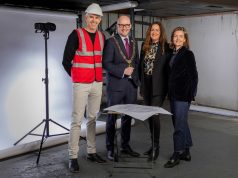
Love in the time of Covid is a tricky thing and the global pandemic has had a massive impact on the dating and relationship landscape in Ireland, particularly if you are single.
According to a new study from Core Research, the pandemic has led to a drastic change in the dating landscape and increased difficulty in finding a new partner. The study shows that 4 in 10 are not interested in meeting up with anyone until they are vaccinated. This limited opportunity to date means that finding a partner is low in the list of priorities for singles. While it is ahead of having kids, it is behind personal growth, career progression and buying a home. Over half of single adults (56%) say that personal growth is their main priority. The pandemic has placed more importance and focus on self improvement and development over relationships.
The research shows that many singletons have moved to online dating through apps and websites but while online dating is considered to be inclusive, the research also found that many believe it can have a negative effect on the dating world. Almost half (46%) of Irish adults say dating apps have made people more shallow, and 1 in 5 adults say that dating apps make them them more lonely, rising to almost 2 in 5 18-25 year olds, the highest of any cohort. 59% of women are more likely to be worried about getting catfished compared to 39% of men, while 49% of women have looked someone up on social media compared to 36% of men.
For those already in a relationship, the survey shows that around 6 in 10 Irish couples have spent more time watching movies and TV shows through digital streaming platforms while over half have gone on more walks and hikes with their partners. This change has been a positive for many with almost half of Irish couples (48%) feeling that being locked down with their partner has improved their relationship.
According to Stephen Mooney, research executive at Core: “For many, Valentine’s Day is a time to celebrate with a loved one, but it is also a good time to reflect on the changing aspects of staying single, dating and relationships. As with all our research projects, we always look at the impact of the results and in this case delayed relationship formation will have a significant impact on household formation in the years to come.”





















